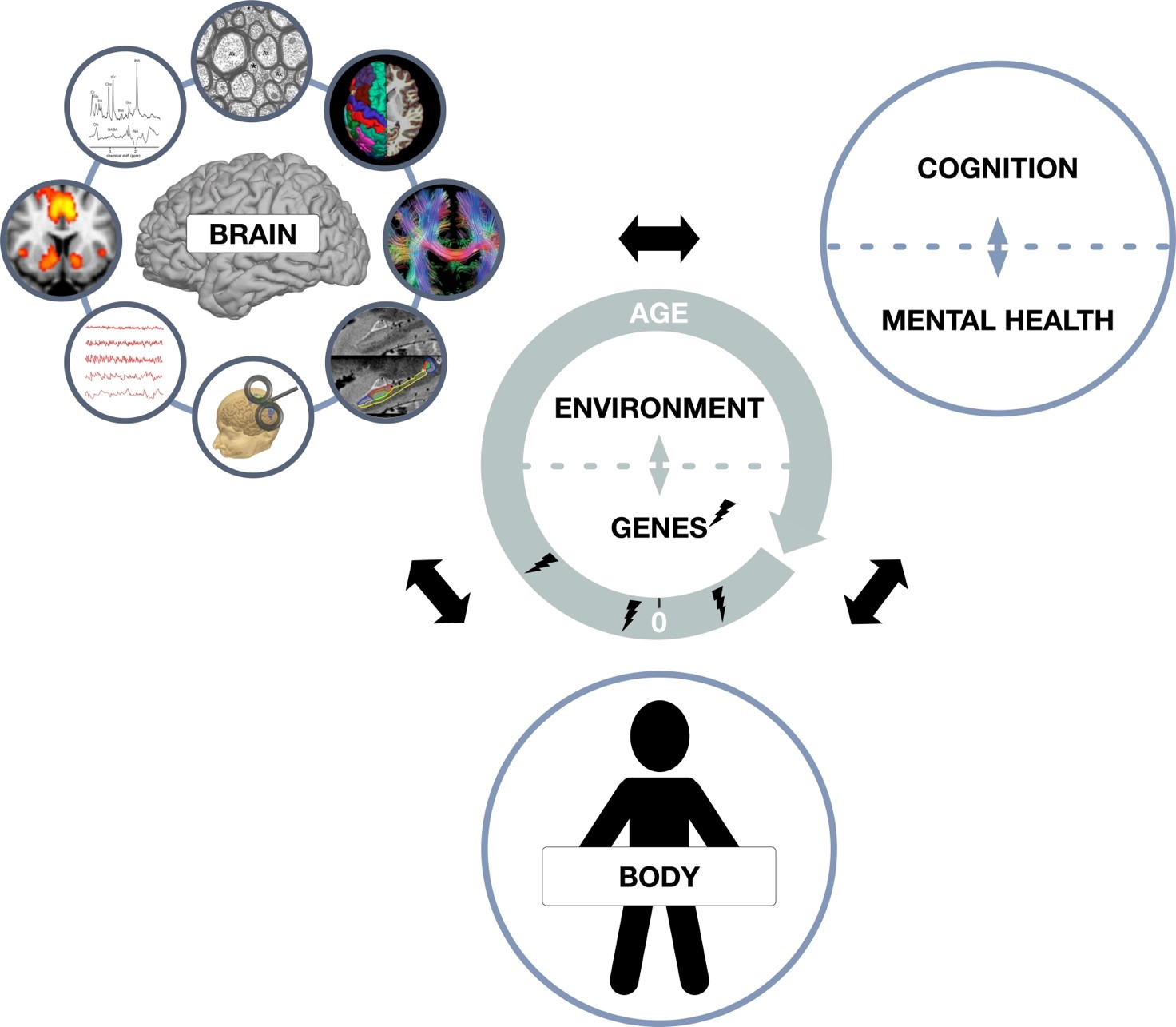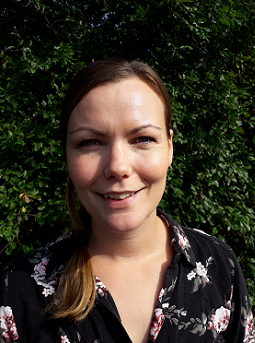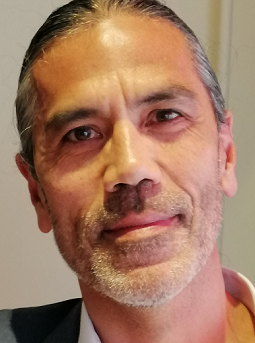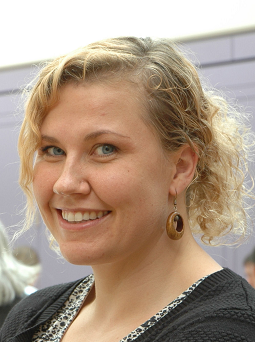Our vision is to improve the prediction and characterization of psychiatric disorders across the lifespan and contribute to developing new prevention and personalized treatment strategies and identifying new treatment targets.
Our mission is to perform multi-disciplinary neuroscience research and use multi-modal neuroimaging techniques to elucidate the complex relationships between brain, body, cognition and mental health and how these relationships are modulated by environmental and biological factors.
Background
Psychiatric disorders such as major depression, anxiety, schizophrenia and bipolar disorders are globally among the leading causes of years lived with disability. Many psychiatric disorders have their onset in childhood, adolescence or early adulthood. Neuroscientific research, driven by the advances in vivo brain imaging methods, established that psychiatric disorders are disorders of the brain. Nevertheless, diagnosis is still largely based on clinical assessment and diagnostic categories are highly heterogeneous with respect to symptomatology and disease progression. Furthermore, available treatments are often generic and not tailored to the individual.
Our research
Our neuroscientific research is highly interdisciplinary. In close collaboration with our clinical partners, we employ state of the art multimodal brain imaging and electrophysiological techniques to elucidate, characterize and monitor the neurobiological and neurocognitive signatures of risk, resilience and disease in different at-risk and neuropsychiatric populations.
We are currently involved in the following projects:
Danish high risk and resilience study (VIA)
The Danish High Risk and Resilience Study – VIA (viaundersoegelsen.org) – is a national longitudinal study of 522 children at age seven (VIA7) born to parents with or without a diagnosis of either schizophrenia or bipolar disorder. “VIA” is the Latin word for road and describes the overall purpose of the project to investigate the developmental path of children with vulnerabilities. At DRCMR we perform EEG and MRI as part of the VIA Brainmap group. See more here: www.drcmr.dk/via.
Treatment Effects of Family-based Cognitive Therapy in Children and Adolescents with Obsessive Compulsive Disorder – TECTO Brain Imaging
TECTO is large collaborative study with national and international partners led by Anne Katrine Pagsberg from the Research Unit - Child and Adolescent Mental Health Centre (CAMHC), Mental Health Services, Capital Region, that combines a randomized clinical trial and longitudinal case-control design to elucidate how neural, cognitive, emotional, and neuroendocrine factors moderate and mediate family based cognitive behavioral therapy (FCBT) response in pediatric patients with obsessive-compulsive disorder (OCD). TECTO is the first large random clinical trial (RCT) in pediatric OCD to include neuroimaging. Characterizing the neural underpinnings of response to FCBT is essential for improving treatment efficacy and identifying potential new treatment targets. See more here: https://www.drcmr.dk/tecto
FAMILY: understanding and predicting the intergenerational transmission of mental illness
As part of the VIA Brainmap study, we are part of the EU funded project FAMILY. FAMILY (https://family-project.eu) is a multidisciplinary initiative that aims to improve the lives of mentally ill persons and their families. FAMILY will build models to predict whether mental illness will be transmitted across generations or not. Furthermore, FAMILY addresses key ethical and social issues raised by risk prediction for clinical use, such as the right not to know and the risk of stigma.
SOCO: A study to determine classifiers associated with two aspects of social cognition relevant to patients with schizophrenia and autism: Mentalizing and Self-Referential processing
SOCO is a newly started collaborative study between DRCMR and the child and adolescent psychiatry unit (CAMHC) with the lead of James Blair (CAMHC). The study includes 180 typically developing adolescents in the age range 14-17 years. The study will later on include adolescents with psychosis with the goal to develop new bio-markers of the neural systems implicated in psychosis-relevant aspects of social cognition.

Multimodal brain imaging and electrophysiological techniques characterize and monitor neurobiological and neurocognitve underpinnings of risk, resilience and mental disease across the lifespan. Bodily functions and fitness are assessed. Lightning bolts: genetic predispositions, prenatal events and postnatal stressors are thought to increase individuals’ vulnerability to stressors that often impact during maturation.





